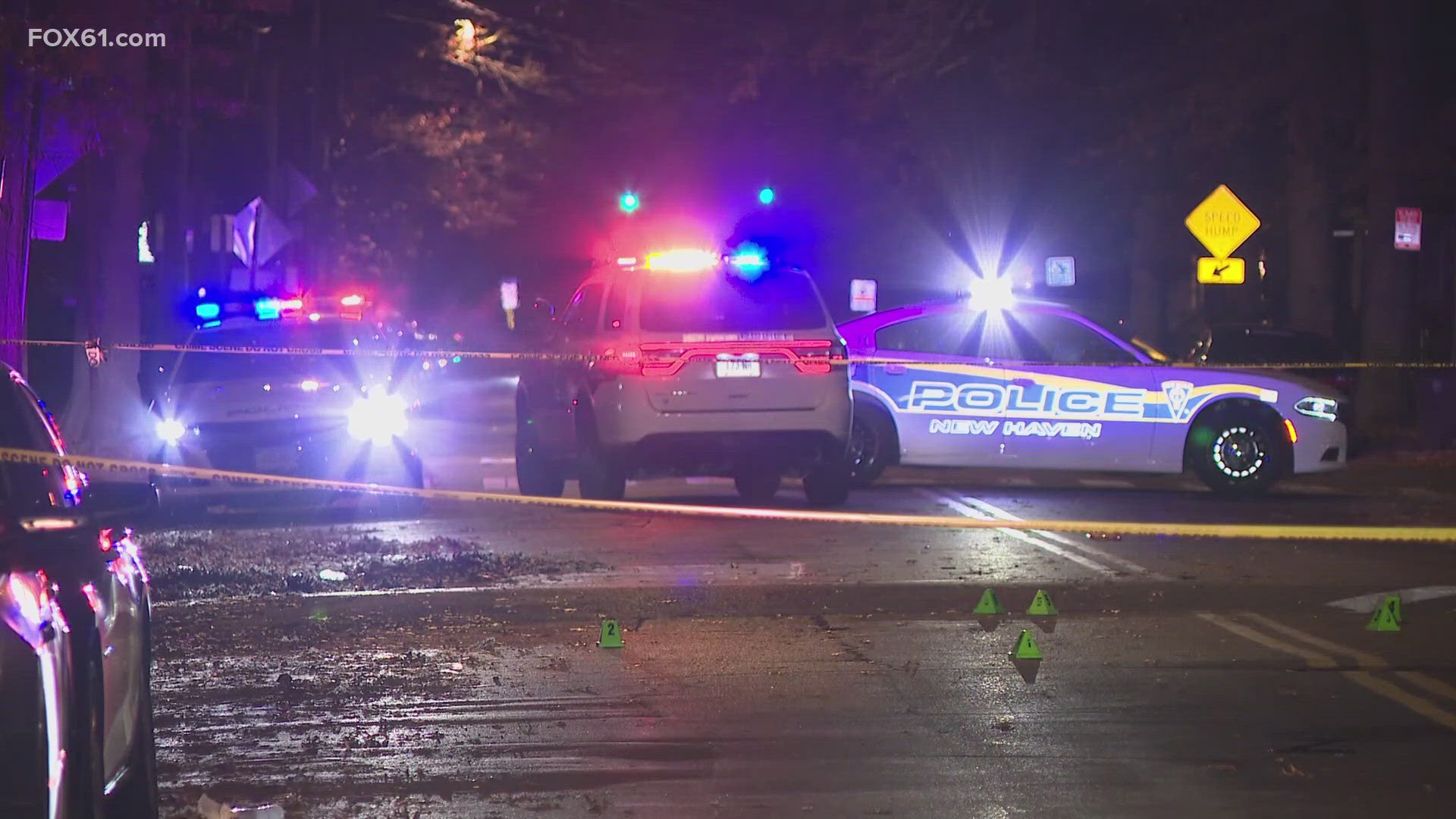ROCKY HILL, Conn. — Two 1993 burglary and sexual assault convictions of a New Haven man have been vacated by New Haven Judicial District State’s Attorney John Doyle, Jr.
The state’s Department of Criminal Justice announced the decision to vacate the two convictions of Charles William Coleman, 65, in a release on Thursday.
Prosecutors said the decision stems from a lengthy investigation completed by the Conviction Integrity Unit, or CIU, of the Office of the Chief State’s Attorney, which worked closely with Coleman’s lawyers from The Connecticut Innocent Project/Post-Conviction Unit of the Division of Public Defender Services and forensic scientists with the Division of Scientific Services of the Department of Emergency Services and Public Protection.
Coleman was serving a combined prison sentence of 170 years for three separate cases that went to trial in 1993; prosecutors said they stemmed from sexual assault and burglary incidents that occurred in New Haven in 1986.
“In each incident the perpetrator entered the female victims’ apartments in the middle of the night with a knife or sharp cutting tool and placed his hand over the victims’ mouths while they were in bed sleeping,” the release said.
According to prosecutors, the perpetrator sexually assaulted two of the victims and assaulted the third victim with a knife. Coleman was convicted in all three cases based, in part, on fingerprint evidence found at the crime scenes.
However, prosecutors said that “new and more sophisticated testing” did not detect Coleman’s DNA in the forensic evidence.
In one case, a sexual assault crime kit containing forensic evidence not previously tested for DNA that was long believed to be destroyed was found by the New Haven Police Department and CIU members. When the DNA was tested, the results eliminated Coleman as a contributor to the samples, according to prosecutors.
In the other case, prosecutors said DNA was tested on pre-trial samples from a sexual assault crime kit taken from the victim using a testing method known as HLA-DQ-alpha that was then in widespread use. The release said that testimony at the 1993 trial from the state forensic laboratory noted that Coleman was included as a potential donor to the samples tested, and that he was within the 15% of the Black population that could have been the source of the DNA.
Samples of genomic material taken from the sexual assault crime kit were retested by the Division of Scientific Services during the CIU investigation using more advanced DNA testing methods, GlobalFiler and YFiler Plus, which were not available in 1993.
“Results of these recent DNA tests of original samples from 1986 have now eliminated Coleman as a contributor to the samples retested,” the release said.
In the release, Director of the Division of Scientific Services Dr. Guy Vallaro said that advances in technology over the past three decades have led to vastly improved testing.
“This means greater sensitivity to detect DNA from minute degraded samples, the ability to detect and separate out the individual DNA profiles in mixtures and much higher discriminating powers,” Vallaro said in the release.
Vallaro added that in June, the forensic lab reanalyzed evidence from a 1986 sexual assault case originally analyzed in 1993 using DQ Alpha, which was originally used to convict Coleman of first-degree sexual assault.
“Reanalysis of the evidence in June 2024, using current and more sophisticated DNA technology, determined that Coleman’s DNA profile was not detected in the forensic evidence,” Vallaro said.
Doyle Jr. stated in the release that the newly discovered DNA evidence led him to no longer have confidence in two of Coleman’s convictions.
However, Coleman’s conviction of first-degree burglary, first-degree assault and first-degree attempted robbery was not vacated and still stands. Prosecutors did say that Coleman served that sentence, which was imposed in 1993.
As a result of the Coleman investigation, the CIU and Division of Scientific Services, working with The Connecticut Innocence Project, have begun reviewing cases of currently incarcerated individuals wherein HLA-DQ-alpha testing was a primary contributor to the conviction, the release said. The reviews will include reexamination of available evidence which may warrant reanalysis using current DNA technology.
In the release, Vallaro reaffirmed the importance of retesting DNA from the Coleman case.
“This case is an example of our commitment to the best science to ensure that the Division of Scientific Services uses the most advanced technology to detect DNA and to uphold the highest forensic science standards,” Vallaro said in the release.
----
Dalton Zbierski is a digital content producer and writer at FOX61 News. He can be reached at dzbierski@FOX61.com.
----
Do you have a story idea or something on your mind you want to share? We want to hear from you! Email us at newstips@fox61.com.
----
HERE ARE MORE WAYS TO GET FOX61 NEWS
Download the FOX61 News APP
iTunes: Click here to download
Google Play: Click here to download
Stream Live on ROKU: Add the channel from the ROKU store or by searching FOX61.
Steam Live on FIRE TV: Search ‘FOX61’ and click ‘Get’ to download.



